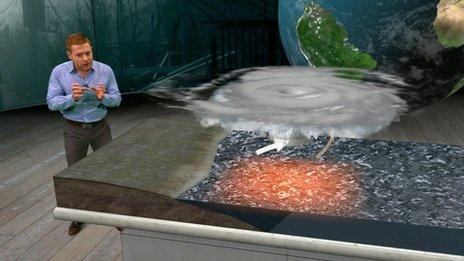Hurricane Michael: Death toll continues to rise amid searches
- Published
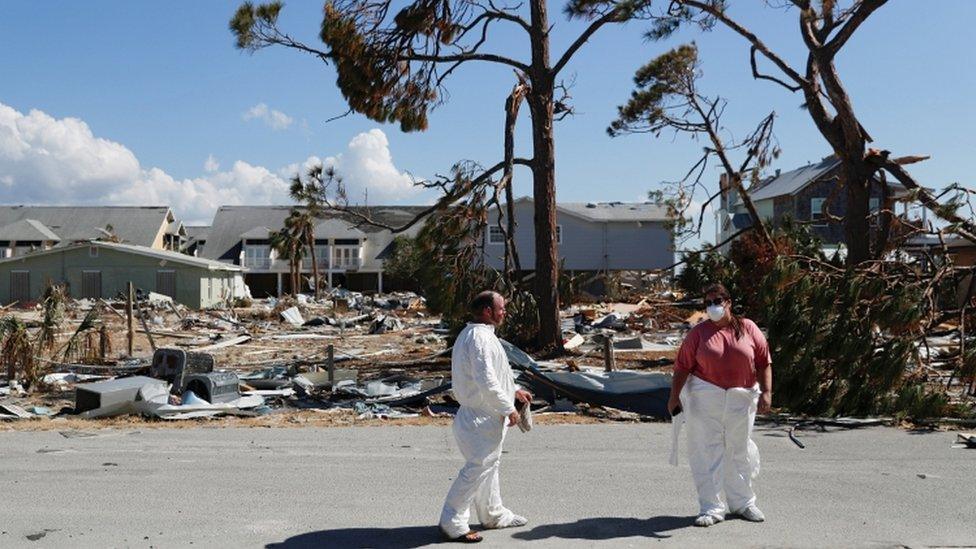
Officials have warned death tolls may rise as teams search the wreckage
Areas of the US devastated by Hurricane Michael last week are continuing to count the storm's cost as the number of confirmed dead rises.
At least 27 deaths have been blamed on the hurricane across four US states - a number expected to increase further.
A volunteer organisation has said it is trying to find more than 1,100 people believed to be unaccounted for.
The storm destroyed buildings and flattened communities as it tore through the Florida panhandle region.
Most of the missing are said to be in Panama City and are elderly, disabled or live alone, co-founder of Houston-based CrowdSource Rescue Matthew Marchetti told the Reuters news agency.
That number has not been confirmed by regional officials, and the Florida Department of Health has created an online form for people to report friends and loved ones missing.
US President Donald Trump and First Lady Melania visited the storm-affected region in Florida and Georgia on Monday.
As of Wednesday morning, more than 150,000 homes and businesses were still reported to be without power.
There were also reports of armed looting of homes and businesses in some areas.
A major at Bay County's Sheriff's office, Jimmy Stanford, said that local police there had arrested about 10 suspected looters every night since Friday.

Destruction everywhere
By Hugo Bachega in Panama City Beach
The trail of destruction left by Hurricane Michael is almost everywhere in Panama Beach City. The ruined buildings, uprooted trees, twisted signs and billboards …
"Words can't describe it," said one resident.
The streets are busy with workers trying to restore electricity and communication infrastructure, and residents cleaning up their neighbourhoods. It may take a few more days before basic services are restored.
A few businesses have signs saying "Keep out" outside, as armed looters are said to be active here, and a night curfew is still in place in the area.
Across the city, volunteers are looking for some missing 1,000 people, according to one rescue group. But difficulties accessing hard-hit areas and poor mobile phone coverage mean they are moving very slowly.

Aerial footage shows the destruction in Mexico Beach, Florida
What is the latest death toll?
The confirmed deaths have risen over the last day as recovery teams with dogs scour through damaged areas.
A Reuters tally of official reports says at least 27 are now confirmed dead - including 17 in Florida.
Another death was also confirmed by officials in Georgia, three in North Carolina and six in Virginia.
Florida medical examiners are also said to be assessing several other fatalities to determine if they were caused by the storm.

Accounting for those missing has been made more difficult by damaged mobile phone coverage in many areas.
Ajit Pai, the Chairman of the Federal Communications Commission, has described the "slow progress" by network companies as "unacceptable".
After the criticism, provider Verizon announced on Tuesday it would give three months of free service to its customers affected in the region.
How bad was the storm?
Hurricane Michael was one of the most powerful storms ever recorded in the US and struck on Wednesday with 155mph (250km/h) winds.
It came ashore on Florida's Gulf Coast and moved up the US east coast leaving a trail of destruction in its wake.
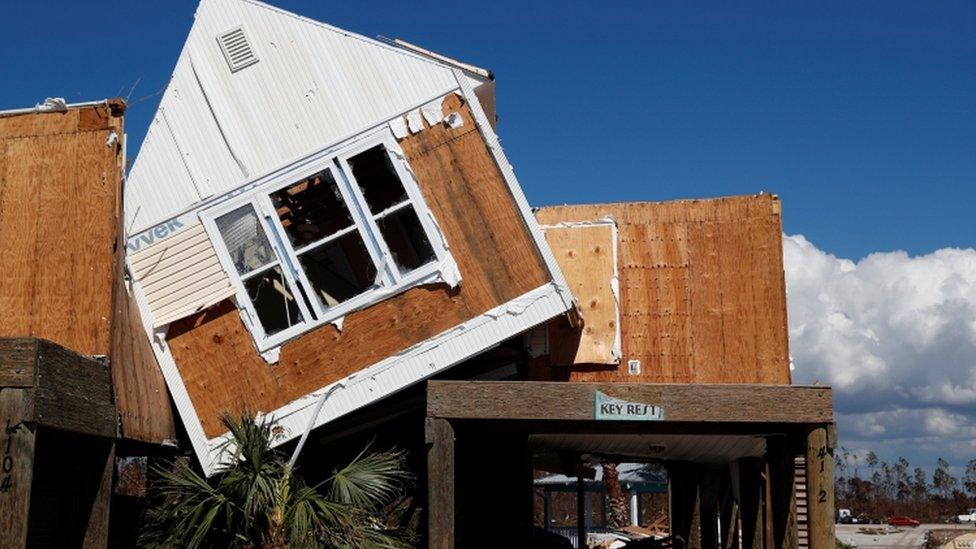
The storm destroyed homes in Mexico Beach
A state of emergency was declared in Florida and on Sunday a similar declaration was made in Georgia.
How is the recovery going?
Many people who fled to shelters further inland when the hurricane hit have been heading home to assess the damage and sift for their belongings.
The area where the storm hit worst, in Florida's Panhandle region, do not have building code standards as strict as in other areas of the state.
Swathes of houses were completely obliterated in Mexico Beach - an area described as "ground zero" for the storm's heavy winds and storm surges.
"Unfortunately, there are going to be more fatalities than people want to admit," local State Rep. Halsey Beshears said on Monday.
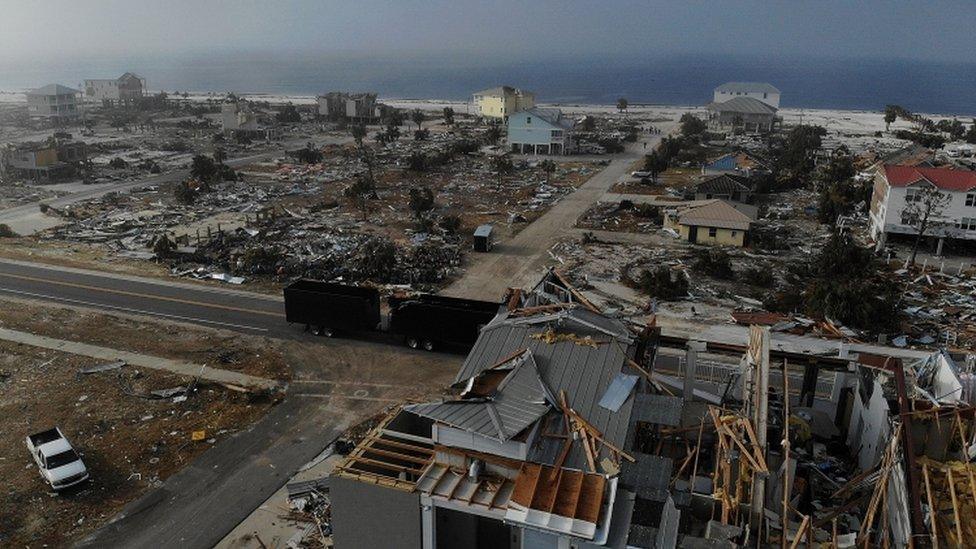
Residents in Mexico Beach have been returning to try to find belongings
Florida Governor Rick Scott has described the area as "a war zone" - with houses ripped from their foundations, cars tossed aside and trees snapped in half.
Thousands of members of the National Guard have been brought in across the state to distribute food and water.
A spokesman for the Federal Emergency Management Agency (FEMA) said that about 35,000 people across Florida had requested federal assistance, and that more than $1m of funding across 12 counties had already been approved.
The agency say it has already supplied about 4.5m meals and 5m litres of water to residents.
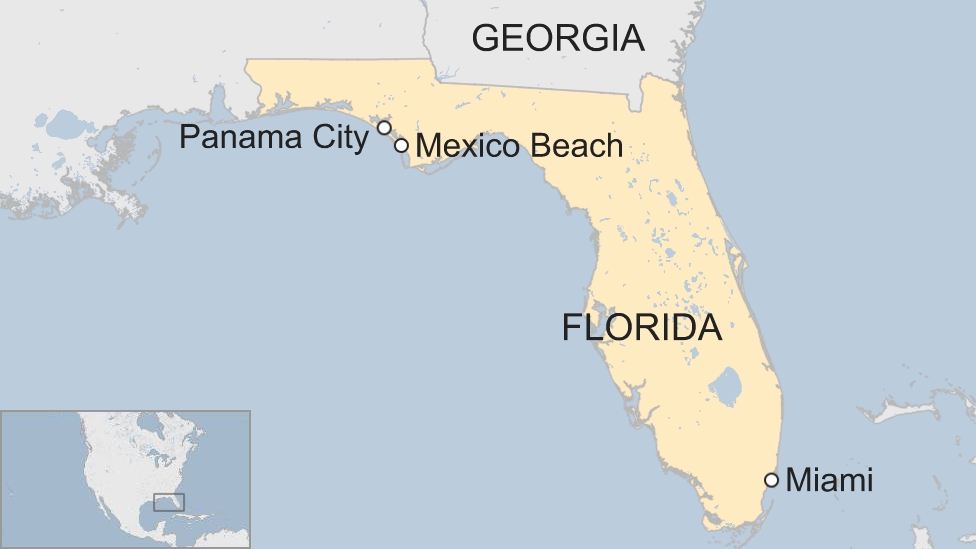
- Published10 October 2018
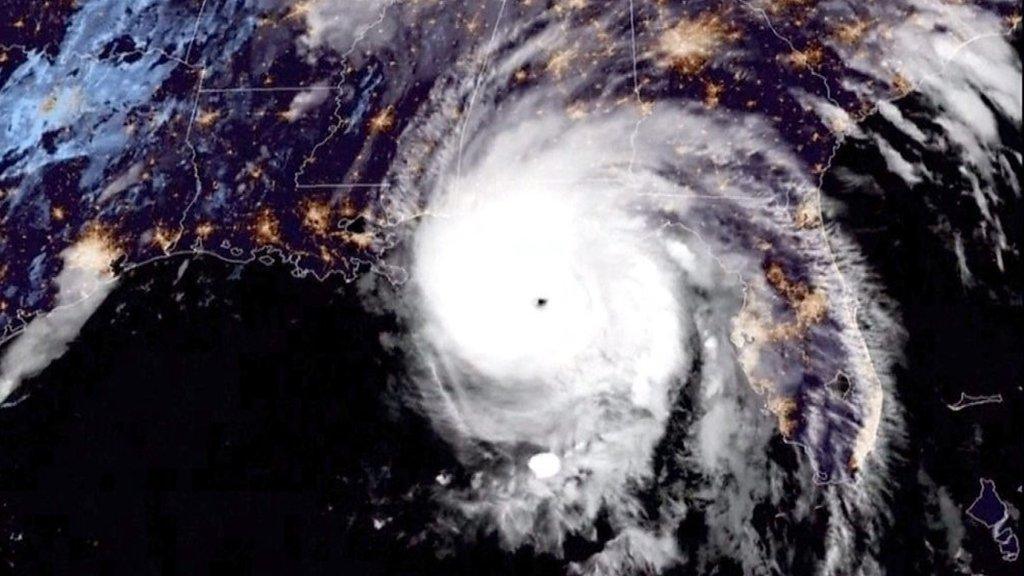
- Published11 October 2018
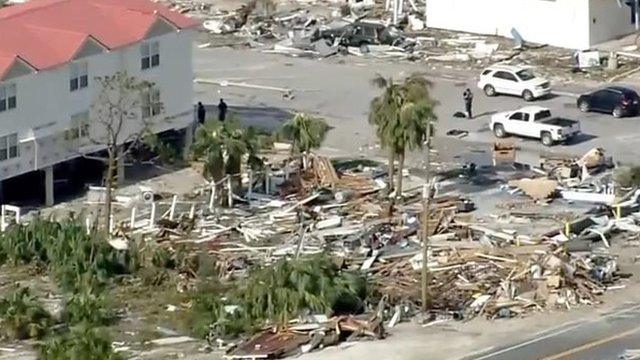
- Attribution
- Published1 October 2016
